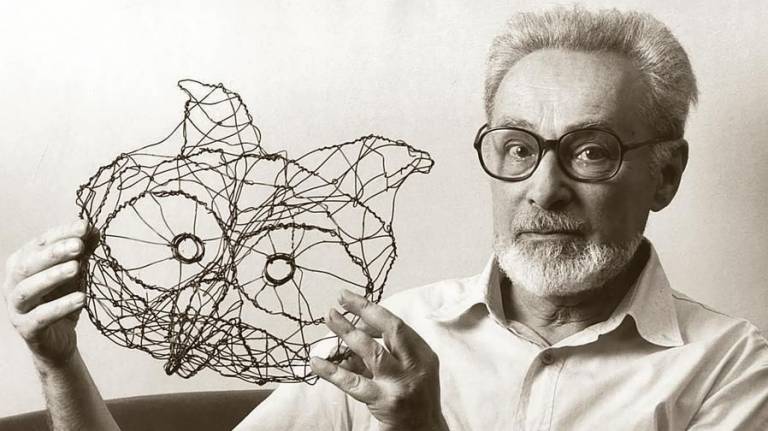VIRTUAL EVENT: IAS Talking Points Seminar - Beyond Personalism
02 March 2021, 6:00 pm–7:30 pm

The IAS is delighted to welcome Visiting Research Fellow Stefano Bellin for a talk entitled 'Beyond Personalism: Primo Levi’s ‘Practical’ Conception of the Human'. Respondents: Enrico Palandri (SELCS, UCL) and Joanna Michlic (IAS, UCL). Chaired by Dr Bastiaan Willems (IAS, UCL).
This event is free.
Event Information
Open to
- All
Availability
- Yes
Cost
- Free
Organiser
-
Institute of Advanced Studies
The Jewish-Italian Holocaust survivor, writer, and chemist Primo Levi (1919-1987) is arguably one of the most influential European intellectuals of the 20th century. My talk aims to challenge the stereotypical image of Levi as a purely rational and calm writer, advocate of clichéd versions of Enlightenment and humanism, and to show that Levi has much to offer to contemporary debates on ethics, posthumanism, and human-animal studies. To do so I will read his testimonial texts through Roberto Esposito’s analysis of the category of the person. Although Levi used the term ‘person’ sparingly, preferring the false universal ‘man’, I will argue that in If This is a Man and in all his subsequent reflections on the Holocaust we can trace a tendency to react to Nazi violence by reclaiming and reaffirming the sort of excess, of a spiritual or moral character, that defines the notion of personhood. However, alongside narratives that present a Cartesian split between the thinking self and the material body, Levi’s work also contains narratives that celebrate the body as a valuable instrument of knowledge and recognize the complex interaction between the thinking, sentient, and social ‘parts’ of our self. Levi’s fictional works and some of his articles challenge traditional human-centered ontologies, question and mock the normative assumptions that shape our intersubjective concept of the human, and explore our own animality as well as our relationships with other animals and the environment. These narratives run counter to the ‘personalism’ that prevails in his testimonial accounts, effectively deconstructing the conceptual apparatus that divides the human in two parts. Following Esposito, I define these narratives as ‘impersonal’, that is to say, as practices that, by reconnecting the personal part of the human with its biological layer, try to think the human as a complex and multiple unit, thus recasting what many see as noble and worthy in the term person in a non-discriminatory framework. Taking stock of the tensions between the ‘personalist’ and ‘impersonal’ aspects of Levi’s work, I will argue that that we should not see these tensions as negative contradictions or as evidence of conceptual inconsistency, but instead as negotiations that are constitutive of Levi’s ethics. The latter is based on a ‘practice’ that conceives the human as something that is ‘enacted’ as a claim and a commitment that acknowledges the singularity of each.
All welcome. An event link will be announced on this webpage. Please do not hesitate to contact us if you need assistance on the day, and follow this FAQ link for more information and to read our virtual events code of conduct. All of our events are free, but you can support the IAS here.
 Close
Close

